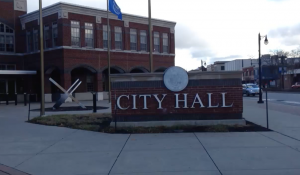Facing dire economic times and dwindling resources, more people are not only becoming homeless – they’re then at risk of facing physical assault.
State Rep. Thomas Holbrook (D-Bellville) introduced a bill, HB5114, that would create stiffer penalties for offenders who target the homeless, veterans, active duty members and reservists of the Armed Forces. Instead of facing up to a year in jail, first-time offenders could spend one to three years in prison, while repeat offenders could receive three to seven.
If passed, Illinois would be the first state to protect veterans under its hate crime law and be one of a handful of states including Maine, Maryland and Washington, D.C., to include the homeless, according to the National Conference of State Legislatures and National Coalition for the Homeless.
Shelters, job training and financial aid are not enough to help the homeless and veterans who are being victimized in Illinois every day, proponents say. They argue the bill would encourage victims to come out of hiding and report these crimes. But opponents contend the bill isn’t needed because perpetrators are already prosecuted under current law, and no victims should receive special treatment.
It’s thrill-seeking teenagers who increasingly target the homeless, said Michael Stoops, community organizer for the National Coalition for the Homeless. Between 1998 and 2008, 43 percent of the 880 hate crimes committed against the homeless in the U.S. were committed by 13- to 19-year-olds.
Twenty-two percent of all homeless are veterans, according to the Department of Veteran Affairs. In Chicago, approximately 1,000 veterans are homeless on any given night.
Ed Shurna, executive director of the Chicago Coalition for the Homeless, said he supports the bill and believes it’s necessary to address the violence perpetrated against people without homes. Last year in Chicago, 74,000 people were without a place to live, Shurna said.
“Someone is lying there defenseless and has no protection,” said Shurna. “The police will not write up the cases and tell them they shouldn’t be there in the first place. They’re blaming the victim.”
The Chicago Police Department did not return calls seeking comment.
By and large homeless are victims, not perpetrators, said Shurna. He describes the types of crimes committed against the homeless as being particularly violent and dehumanizing.
“Homeless people are set on fire and spray painted,” said Shurna. “A lot of people who are homeless try to hide and squirrel because they’ll be targeted.”
David Rittgers, spokesman for the Cato Institute in Washington, D.C., a public policy research center based on libertarian principles, disagrees the bill is needed because Illinois has laws on the books criminalizing assault and battery.
“There’s overlap here,” said Rittgers. “While the homeless might be a target, it’s already illegal to assault them.”
Rittgers said the bill is not good policy and is discriminatory towards certain offenses.
“We’re supposed to punish crime equally amongst all persons,” Rittgers said.
Johanna Dalton, executive director of Goldie’s Place, a support center for the homeless, said she supports initiatives protecting the homeless against these types of crimes, but it is just one piece of a larger, complex puzzle.
Goldie’s Place serves approximately 1,000 people each year, providing employment training and supportive services. Dalton said 60 percent of their clients are chronically homeless, meaning they’ve been without a home for at the least the last 12 months. Housing opportunities are limited and restrictive and the road to self-sufficiency is long, said Dalton.
“These are the people most in need; for them it’s not a sprint but a marathon,”said Dalton. “And we try to provide a sense of hope, but there are so many gaps in the system.”

![Reblog this post [with Zemanta]](http://img.zemanta.com/reblog_c.png?x-id=e41dc151-93f9-4c22-a0a5-76b932462de2)















Be First to Comment